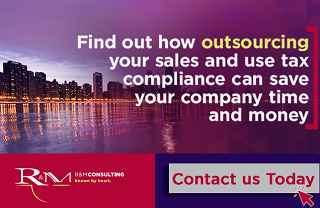I Bought a Taxable Item and the Seller Didn’t Charge Sales Tax. Do I Have to Pay the Tax Anyway?
If you purchase a taxable item and the seller did not charge sales tax, you are obligated to pay use tax to the state where the item is used. If sales tax is not charged on the sale of a taxable item, then use tax is due. Use tax is complementary to sales tax. If sales tax is charged, then use tax is not due. The use tax is a tax on the use or consumption of a taxable item or service where no sales tax was paid on its purchase. Use taxes owed in this context are often referred to as “consumer’s use” taxes.
Consumer’s use tax is a tax on the purchaser and is self-assessed by the purchaser on taxable items purchased where the vendor did not collect either a sales or seller’s use tax. The purchaser remits the consumer’s use tax directly to the taxing jurisdiction where the use or consumption occurred. Businesses or individual consumers who make purchasers of taxable items without paying sales taxes are treated as consumers of the items or services and owe the tax.
Reporting Consumer’s Use Tax as an Individual
Some jurisdictions have a minimum dollar threshold for accrual of consumer’s use tax. For purposes of consumer’s use tax, Chicago, Illinois does not tax the first $2,500 of purchases annually. Other jurisdictions apply minimum amounts subject to tax based on the nature of the item sold, for example, the city of New York does not apply use tax to the first 400 cigarettes brought into the city or in the possession of an individual.
The obligation to pay use tax on purchases applies to businesses as well as individual consumers. For individual consumers, use taxes owed but not paid on everyday purchases are often reported on the individual income tax return. States don’t often go after individuals for use tax as it isn’t cost efficient for them to do so. However, by adding the line to the individual income tax return and requiring it to be populated, they are seeing more amounts being reported and paid.
Consumer’s Use Tax on Vehicle Purchases
One type of purchase where consumer’s use tax is paid consistently, even by individuals is on the purchase of vehicles, vessels, or trailers where a state issued registration, license, or title is required to operate the item.
Before a state will issue a valid registration or license for vehicles, vessels, or trailers, they require payment or proof of payment of consumer’s use tax on the purchase price. Dealers typically collect sales taxes on sales of new and used vehicles, vessels, or trailers; but when sales are made between two individuals, no tax is collected. Where the operation of a vehicle, vessel, or trailer requires a state issued registration, license, or title, consumer’s use tax is collected on the purchase price by the registering authority at the time of registration.
Use Tax Compliance for Businesses
Individual consumers are also more likely to pay consumer’s use tax on a purchase made via dealers in expensive fine arts, auctioneers, or consignees, depending on the state.
On the other hand, use tax compliance for businesses is closely scrutinized by the states. Companies that make tax-free purchases of taxable items for their own use or convert inventory to their own use must comply with use tax obligations. The administration of an accurate and manageable use tax system can be challenging. For businesses with multiple locations the challenges may be made much greater due to shifting locations of stock, supplies, and assets between locations where different rules and rates may apply.
Looking for more information? Check out the following resources:
- Visit our What is the difference between sales tax and use tax? FAQ
- Visit our If you don’t have nexus and don’t charge sales tax, are you liable if the customer does not pay the tax? FAQ
- Learn essential sales and use tax concepts with our Sales Tax 101 webinar on-demand
